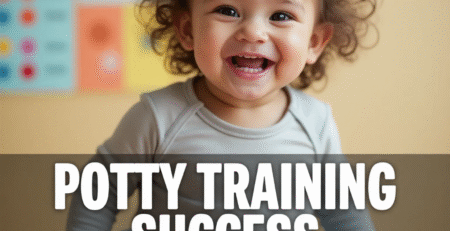Unleashing the Power of Apology: A Guide to Forging Deeper Family Bonds
Parenting can sometimes feel like navigating a ship through stormy seas—there are calm moments, but the waves can get rough. In those tempestuous times, one of the most powerful tools you can wield is a sincere apology. Yes, that’s right! Nothing mends a broken bridge quite like a heartfelt “I’m sorry.”
Navigating the Chaos
We all start our parenting journey with the best intentions. Yet, there are moments when even the most patient parent might lose their cool. Imagine this: You’re juggling a hundred things at once, the food is burning, the kids are bickering over a toy, and your stress levels are through the roof. It’s easy to snap. You’re only human after all. What sets you apart is your ability—and responsibility—to make amends.
The Healing Magic of a True Apology
So, why is saying sorry so powerful? Because a sincere apology heals wounds, bridges gaps, and most importantly, sets a shining example for your kids. But here’s the catch—it has to be genuine. A true apology never has a “but.” For instance, “I’m sorry you’re upset, but you were provoking me,” isn’t truly taking responsibility. It shifts the blame onto your child and misses the mark of true remorse.
Here’s how to do it right. Say something like, “I’m sorry for yelling earlier. That was out of line.” Or, “I apologize for breaking my promise. That wasn’t fair to you.” By acknowledging your actions without excuses, you teach your children a powerful lesson in accountability.
Tip #1: Practice Real Apologies
Throughout the day, if situations arise where you lose your temper or make a mistake, model a genuine apology. Your kids will learn the importance of owning up to their actions by observing you.
Strength in Vulnerability
Apologizing might feel like exposing a weakness. You might worry that your kids will see you as less authoritative or that they won’t respect you anymore.
On the contrary! Owning up to your mistakes shows remarkable strength and integrity. It portrays you as a reliable and compassionate figure—someone they can learn from and trust.
Some parents hold back from apologizing because they wait for their kids to show remorse first.
However, this approach is counterproductive. Remember, you’re the grown-up here with more emotional maturity. Your role is to guide them through these complex emotions, not to match their level of understanding.
Tip #2: Lead by Example
If you see your child struggling with apologizing, step in and model the behavior. Show them how to make a sincere apology without expecting anything in return. “I was wrong to take your toy without asking. I’m sorry” can be a powerful example.
Embrace Your Humanity
The next time you feel yourself teetering on the edge, offer yourself a bit of compassion. Parenting is demanding, and perfection is an illusion. Acknowledge that you’re doing your best and that missteps are part of the journey. When you inevitably stumble, take a moment to breathe, forgive yourself, and make things right.
Tip #3: Self-Compassion Breaks
Set aside a few moments each day for self-compassion breaks. Recognize your efforts, forgive your mistakes, and give yourself credit. A calm and self-compassionate parent is better equipped to navigate the ups and downs of family life.
Seeing Your Kids for Who They Are
Lastly, and most importantly, learn to see your children for who they truly are—unique individuals with their own feelings, thoughts, and dreams. Embrace their individuality and nurture their growth with empathy and understanding. There’s no one-size-fits-all approach to parenting, so trust your instincts and cherish the bond you share with your kids.
Tip #4: Connection Rituals
Create small daily rituals that strengthen your bond with each child. It could be a bedtime story, a five-minute chat about their day, or a morning hug. These simple routines build connections that last a lifetime.
Conclusion
In the end, it’s all about connection and growth—for both you and your children. So, keep apologizing, keep loving, and keep navigating this beautiful, messy journey of parenthood with heart and grace. Remember, it’s not about being perfect; it’s about being present, genuine, and loving every step of the way.













LEAVE A COMMENT